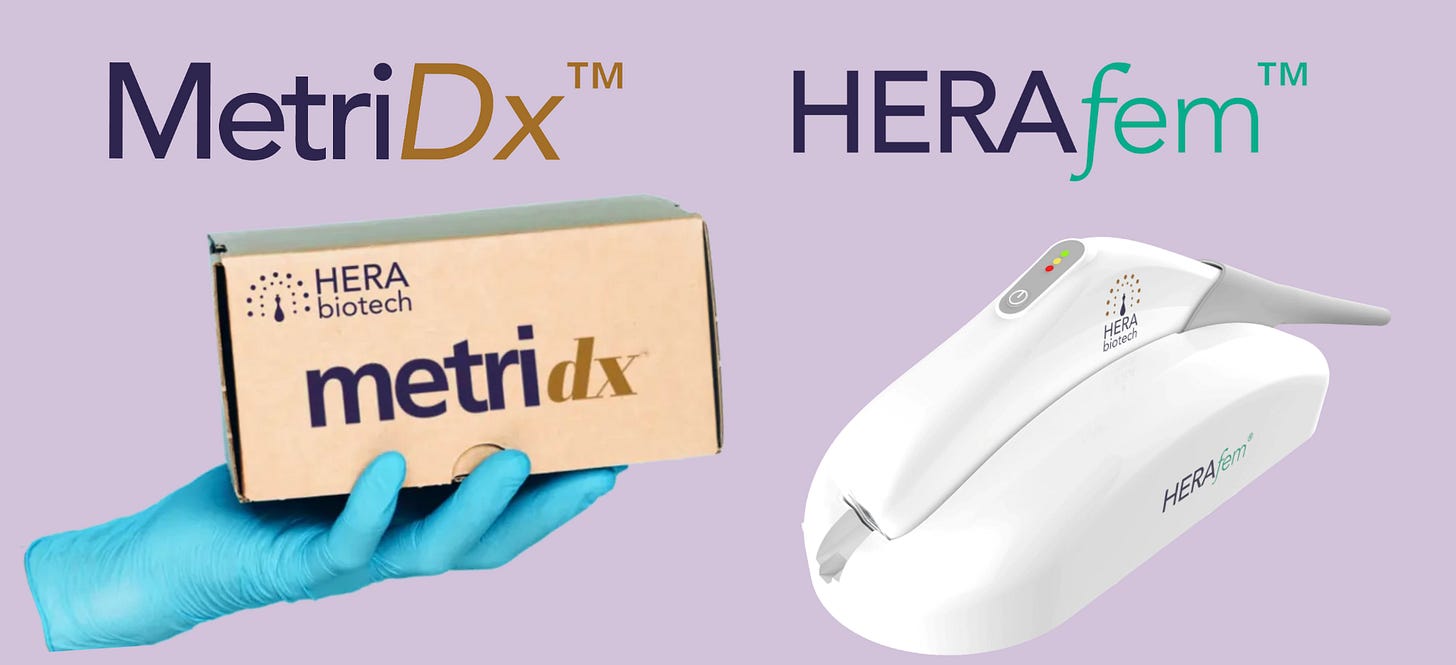Hera Biotech acquires HeraFem in bid to transform cervical cancer diagnostics
Best known for its endometriosis diagnostic tool
Hera Biotech, a US-based firm best known for its non-invasive diagnostic tool for endometriosis, has announced the acquisition of HeraFem®, a point-of-care cervical cancer detection device developed by Hera Diagnostics. The move signals a shift in focus for the company, expanding its reach into one of the world’s most preventable yet deadly cancers.
The acquisition positions Hera Biotech to offer diagnostic tools beyond its current endometriosis portfolio. It also places the company at the forefront of a growing effort to challenge longstanding weaknesses in cervical cancer detection, particularly in underserved areas.
Addressing persistent gaps in cervical cancer screening
Cervical cancer is responsible for an estimated 350,000 deaths each year, with the vast majority — 94% — occurring in low- and middle-income countries. While screening efforts have improved outcomes in many parts of the world, substantial limitations remain. According to the US National Cancer Institute, Pap test sensitivity varies widely, detecting high-grade lesions in as few as 55% of cases.
This variation has real consequences: delayed diagnoses, missed cases, and in some instances, unnecessary medical interventions. In the United States alone, cervical cancer is associated with an annual cost of $2.8 billion, much of it stemming from diagnostic delays and outdated methodologies.
HeraFem promises a different approach. The device, which uses a combination of electrical and optical spectroscopy guided by artificial intelligence, delivers same-visit results. With a reported 91% sensitivity in detecting cervical intraepithelial neoplasia grade 2 (CIN2+) lesions and above, HeraFem seeks to streamline what is often a drawn-out and uncomfortable diagnostic process.
Unlike traditional methods, the device does not require tissue collection — an advance the company says eliminates pain, spotting, and the emotional toll of waiting days or weeks for lab results.
“For too long, time-consuming, imprecise testing methods have shaped women’s health,” said Somer Baburek, CEO of Hera Biotech.
“Even in the U.S., over 10 million women live in healthcare deserts—proof that reliable access to accurate cervical cancer testing isn’t just a global issue, it’s systemic. HeraFem eliminates location barriers, reduces misdiagnoses, and delivers the clarity women deserve—from rural Mississippi to remote Guatemala and beyond—with scientific precision and diagnostic equity.”
From lab bench to global distribution
The acquisition comes as the cervical cancer diagnostics market — valued at $12 billion — undergoes a broader shift towards more precise, accessible, point-of-care solutions. Hera Biotech plans to integrate HeraFem into its wider platform, expanding distribution in regions with limited access to lab infrastructure.
“HeraFem closes persistent gaps in cervical cancer detection—speed, sensitivity, access, and patient experience,” said Teo Tijerina, CEO of Hera Diagnostics.
“Integrated into Hera Biotech’s platform, it scales fast, precise, affordable care—cementing HeraFem as a cornerstone in tackling one of the toughest challenges in women’s health.”
Hera Biotech has already secured distribution partners and pre-orders across Central and South America. The company is now navigating regulatory pathways in the US and raising a bridge funding round to accelerate commercial rollout.
Beyond endometriosis
Founded with a focus on endometriosis—another widely underdiagnosed women’s health condition — Hera Biotech’s platform is built around non-invasive diagnostics that prioritise speed, accuracy, and accessibility. Its flagship product, MetriDx™, enables definitive diagnosis and staging of endometriosis without surgery.
With the addition of HeraFem, the company’s focus broadens considerably. Both devices operate independently of lab infrastructure and are engineered for scalability—qualities Hera hopes will open doors in remote clinics as well as urban healthcare systems.
For Hera Biotech, the acquisition is about more than expanding a product portfolio. It is a direct response to entrenched disparities in women’s healthcare access.
As Baburek put it, the goal is “scientific precision and diagnostic equity.”
This is not the first acquisition for Hera Biotech. In January 2024 Hera acquired the endometriosis assets from Swiss AI company Scailyte.




More is definitely needed to ensure that those in healthcare deserts are given equitable care. However, as you have talked about the ability for tech to change the outcomes and ability to diagnose preventable cancers and diseases is astounding, I hope to hear more from this space in the future. Great stack!